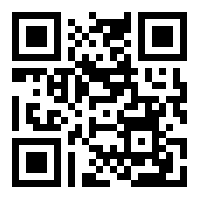Building bridges and walls: Education and COVID-19 in Nigeria
##plugins.themes.bootstrap3.article.main##
Abstract
The outbreak of the Coronavirus pandemic in present time has widened the gaps in the education industry across the globe. Despite that COVID-19 remains new, its impact on the entire humanity is unprecedented trauma. In order to contain the Coronavirus pandemic has caused disruptions in the academic activities of schools in many countries of the world. School closures because of this pandemic has caused untold hardship academically to students by accounting for over one billion learners out of school, affecting larger percentages of the world's learner population. Therefore, this study x-rays the opportunities that the pandemic can offer our education system in Nigeria. It is not gainsaying that Coronavirus pandemic has exposed the bad state of our education sector and accumulated negative impact of its quality. Government in their successions has paid lip service to education by not invested massively on the sector. However, the novel COVID-19 has emerged to break and collapse the walls that surround our education sector and it is imperative for all stakeholders in education industry particularly teachers and students to embrace digital shift in education by digitally upgrade their technology capacities by following the rising global direction on the usage of technologies in education.
##plugins.themes.bootstrap3.displayStats.downloads##
##plugins.themes.bootstrap3.article.details##
This work is licensed under a Creative Commons Attribution-NonCommercial-ShareAlike 4.0 International License.
This open-access article is distributed under a Creative Commons Attribution (CC-BY) 4.0 license.
You are free to: Share — copy and redistribute the material in any medium or format. Adapt — remix, transform, and build upon the material for any purpose, even commercially. The licensor cannot revoke these freedoms as long as you follow the license terms.
Under the following terms: Attribution — You must give appropriate credit, provide a link to the license, and indicate if changes were made. You may do so in any reasonable manner, but not in any way that suggests the licensor endorses you or your use.
No additional restrictions: You may not apply legal terms or technological measures that legally restrict others from doing anything the license permits.
How to Cite
References
Brooks, F., (2014). The link between pupil health and wellbeing and attainment. Public Health England, Wellington House, 133-155 Waterloo Road, London SE1 8UG Tel: 020 76548000 www.gov.uk/phe.
Cascella M, Rajnik M, & Cuomo A. (2020). Features, evaluation and treatment coronavirus (COVID-19). Treasure Island (FL): StatPearls Publishing;
Coronavirus. (2020). Retrieved April 21, 2020, from World Health Organization website: https://www.who.int/health-topics/coronavirus#tab=tab_1
COVID-19 Educational Disruption and Response. (2020, March 24). Retrieved April 21, 2020, from UNESCO.org website: https://en.unesco.org/news/covid-19-educational-disruption-and-response
Education International News; COVID-19 tracker, Published 25/03/2020. Accessed online (18/4/2020), From: https://www.ei-ie.org/en/detail/16669/education-international-covid-19-tracker.
Erika, C. & Nicholas, A. C. (2020). Closing The Schools Is Not The Only Option. The Atlantic. http://www.theatlantic.com/ideas.
https://en.unesco.org/themes/education-emergencies/coronavirus-school-closures
Impact of the 2019–20 coronavirus pandemic on education. (2020, April 19). Retrieved April 21, 2020, from Wikipedia.org website: https://en.wikipedia.org/wiki/Impact_of_the_2019 20_coronavirus_pandemic_on_education
International Task Force on Teachers for Education 2030. (27 March 2020). Response to the COVID-19 Outbreak: Call for Action on Teachers.
Lu R, Zhao X, Li J, Niu P, Yang B, Wu H, et al (2020). Genomic characterisation and epidemiology of 2019 novel coronavirus: Implications for virus origins and receptor binding. Lancet, 395(10224): 565-574.
Mahaye, N. O. (2020). The impact of COVID-19 pandemic on Education: Navigating forward the pedagogy of blended learning. Research online.
Onyeama, M. O., Nwafor, C. E., Obafemi, F. A., Shuvro, S., Atonye, F. G., Sharma, A., & Alsayed, A. O. (2020). Impact of Coronavirus pandemic on Education. Journal of Education and Practice, 11 (13); 108-121.
UNESCO. (2020).How to plan distance learning solutions during temporary schools closures. Retrieved 2020-03-16.
UNESCO: 290 Million Students Stay Home due to Coronavirus. (2020, March 7). Retrieved April 21, 2020, from learningenglish.voanews website: https://learningenglish.voanews.com/a/unesco-290-million-students-stayhome-due-to-coronavirus/5317148.html
United Nations Education Scientific and Cultural Organization (2020). COVID-19 Educational Disruption and Response. Retrieved from: https://en.unesco.org/covid19/educationresponse
World Health Organisation Coronavirus. [Online]. Available from: https://www.who.int/healthtopics/ coronavirus. (Cited on 14 March 2020).


